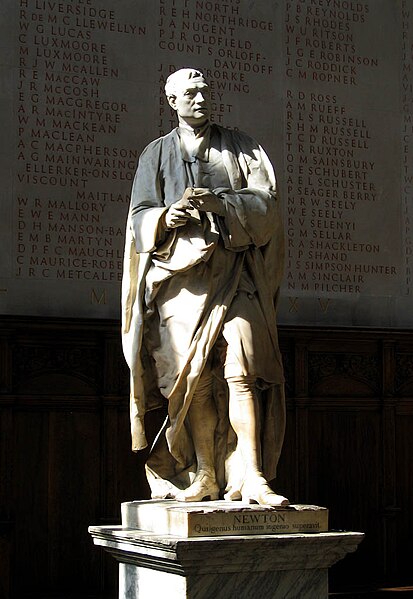- Opinion
- 17 de June de 2024
- No Comment
- 9 minutes read
Standing on the shoulders of giants (Knowledge, teaching and learning)

Standing on the shoulders of giants (Knowledge, teaching and learning)
As Newton said, we are standing on the shoulders of giants. Let’s stay there, if we go down, then we’re dwarfs


Since a teacher is a self-conscious repository of knowledge he’s got the function to convey, his prestige is directly harmed by any problematization of knowledge or by its devaluation. And knowledge has certainly a lot of enemies of varied kind. To question knowledge from outside epistemology means also to be questioning teaching and the one who teach. Maybe it all began there.
It is wellknown the constructivist theory refuses that knowledge can be transmitted to learners through direct instruction. Instead, each one construct his understanding by his own in his internal psyche. May we say it is therefore odd that, nevertheless, knowledge has been historically accumulating and expanding the human heritage throughout history generation after generation. A true prodigy, since we consider it from the constructivist point of view, but anyway…
One of the consequences that follows from this is the denial of the teacher/student binomial. The fact this binomial has also been working reasonably well for the last twenty-five centuries does not seem to worry constructivism at all. Hence the rejection of the classic teacher-centered learnig and master classes, replaced by the commitment of coaching, flipped classroom, self-learning, comprehensive school… By the way, the only knowledge that seems to be transmissible is that knowledge it is not, given the form of master class that constructivists blame, but they all use to convey their opinions, which is certainly a curious aporia…
One of the questions that most intrigued Piaget, a renowned founder of constructivism, it was what a hell was going on through the mind of someone who, given a numerical series 2, 4, 8, 16, 32… when asked for the next number would answer, for example, 97. No doubt this may suggest a promising investigation, providing we properly assume the subject then are not anymore the numerical series, but the mind of the individual being studied, and as long as we are not talking about knowledge and teaching; If we do, then it’s a completely different story.
Because then it turns out that, whether knowledge is transmissible or not, any answer can be valid, in a broad sense; so «97», of course. Something similar could happen with the uniformly accelerated movement in free fall (g), namely 9.8m/sec2, which could be as well objected. First, because it may actually disagree with strict empirical observation: a chicken feather and a 5 kg iron ball dropped at the same time will not reach the ground simultaneously. Second, because, in any case, this would only work in the vicinity of Earth. And if everything is questionable because it’s only a partial o particular thruth, then what to teach and how?
From certain anti-academic approaches, even anarcho-epistemologist ones, such examples are often used as demonstrating the inadequacy of the traditional school patterns, which in addition to being false because only partially or particularly valid, it constrains the student’s imagination and creativity, as well as free and spontaneous development of his intelligence, since school is arbitrarily constricted within the framework of a strictly memoristic and narrow point of view. And beyond the picturesque statement of the intransmissibility of knowledge, this leads us to question knowledge itself in terms of what contentd and how to teach it.
But that’s only a result of not knowing to discriminate between the logical order of foundation of knowledge and the chronological order of learning. And the fact is that learning goes from the simplest to the most complex, unlike knowledge foundation, wich goes from the most general to the most particular; from the phenomenon to theory and laws, and from these down again to the phenomenon, now integrated in a proper framework. But then, given the alleged lack of foundation, we’ll only might be able to understand further on, what is intended is that the method itself becomes the foundation of what is being taught, whose validity should lie on it. Very tortuous, yes; there is another name for this: pedagogism.
Without prior learning there is no a priori theorizing, because whatever we theorize about, it must be on something. Anyway, after a few millennia, human knowledge is thematized, systematized and structured, and that allows us to “imagine” a right triangle to go towards the Pythagorean Theorem that we intended to explain. Because teaching requires previously known content, not to “discover” it.
What happends then if it turns out that the Pythagorean Theorem comes not to be valid in non-Euclidean geometries? Well, there is not much we can do about; Anyway, it is still valid in plane geometry. Just like geometric progressions are a particular case of a mathematical sequence of real numbers that adjust to a common ratio (r) where each term is found by multiplying the previous one by (r). And the same about (g), the acceleration produced by the force of gravity in the vicinity of the Earth in a theoretical vacuum, not in Mars, nor in a black hole. The validity of things is simply limited within the framework it fits in. The opposite is trying to teach from chaos, which means the deluded aspiration of repeating in each individual psyche the entire historical process of progressive acquisition of knowledge – something impossible, unless we are Gnostics – which, furthermore, we do not have to discover because someone did before, but just to understand individually, wich allows us collectively to move forward, always starting from the heritage we’ve received as legacy from prior generations.
That’s why Project Based Learning must never become the key to any education system, nor as a universal method. Yes, it may be usefull punctually, incidentally, complementary, but nothing else, because if we do not know beforehand where are we getting into without the prior knowledge and tools to extract some clarity, we will continue in the dark. This is why there is one “thing” called Physics, another one called Chemistry, Biology… Light-lit areas in the midst of darkness that enable us to map the chaos.
I will conclude with a personal memory from a longtime ago, wich I remember, however, very clearly. I think it might be a good example of what I’ve tried to say. Many years ago, in Physics and Chemistry class at the age of 12/13, equivalent to the current 1st or 2nd year of Secondary middle school. We were being introduced into electricity and electrostatics, and the teacher stated and explained Coulomb’s Law to us. My surprise was such that the Gestalt Psychology would call an “insight”; an exlamation arose from the deepest inside of myself, just like the archimedean «eureka»: Wow, it’s like Newton’s law!
I am sure that if I had been trained in a comprehensive school centered on Project Based Learnig I had never come to such idea. From the simple to the complex, let’s stop with inventions and innovations that are not really so, but just in their totalizing aim: a school model where the transmission of knowledge is banned; a school that disregards the legacy we’ve received from those who came before us. If we don’t have to discover what is already known so far is because they already did it for us. This is the most wonderful heritage mankind may ever have. As Newton said, we are standing on the shoulders of giants. Let’s stay there, if we go down, then we’re dwarfs.
Source: educational EVIDENCE
Rights: Creative Commons

